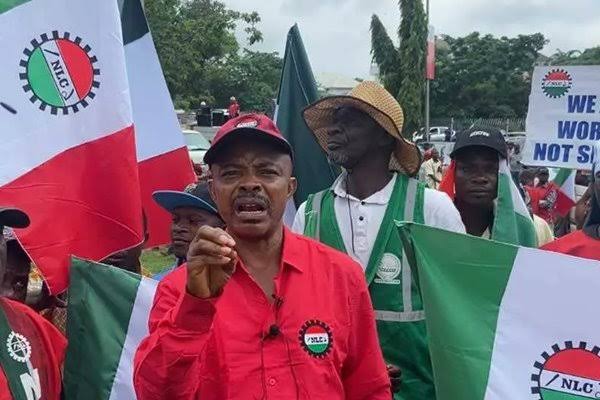
The Nigeria Labour Congress (NLC) expressed concern on Thursday over the recent hike in petrol prices, which it claims has effectively rendered the proposed N70,000 minimum wage obsolete. At a two-day workshop in Lagos titled ‘Strategies for Effective Implementation of the 2024 National Minimum Wage Act,’ NLC President Joe Ajaero criticised the federal government’s handling of the fuel subsidy removal and subsequent price increases.
Ajaero revealed that organised labour feels deceived by President Bola Tinubu, who had assured them that the government would not raise fuel prices after they agreed to the N70,000 minimum wage. However, with the continued increase in fuel costs, the economic situation for Nigerian workers has worsened.
“There is a tactic to distract us, with accusations of cybercrime, terrorism financing, and other allegations, while fuel prices continue to soar, deepening the hardship on Nigerians,” Ajaero said.
Ajaero explained that the NLC had negotiated with the President, who pressured them to accept higher fuel prices in exchange for a wage increase of up to N250,000, an offer they declined, recognising that even that amount would not ease the burden caused by further fuel hikes.
“The N250,000 would still be insufficient, given the current rate of fuel price increases,” Ajaero stated, adding that the wage would barely cover the cost of petrol.
The NLC President also shared that President Tinubu had proposed funding a trip for labour leaders to visit West African countries where petrol prices are significantly higher, citing Cameroon’s N2,000 per litre as an example. However, Ajaero and his team declined, stressing that the real issue is the smuggling of products out of Nigeria to neighbouring countries.
Ajaero further revealed the challenges faced in negotiating a livable wage, with strong opposition from private sector employers, federal, and state governments, who resisted any substantial wage increases. Despite these difficulties, Ajaero urged the government to address the worsening poverty and hunger in the country to prevent further escalation of social unrest.








